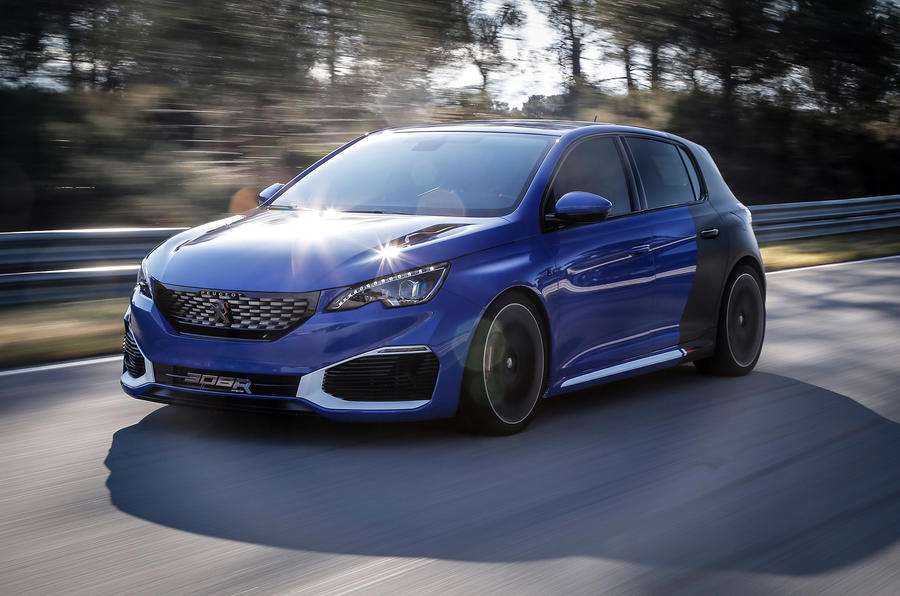What is it?
The Peugeot 308 R Hybrid could be the next watershed moment for plug-in hybrid powertrain technology, which is flooding into the performance car market in the way that all advanced technologies tend to: from the top downwards.
It has transformed the modern hypercar into something we wouldn’t have recognised 20 years ago, and has left a big impression on the sports car scene in the outlandish shape on the BMW i8.
While the decidedly lukewarm Volkswagen Golf GTE has already given it an outing of sorts among hot hatchbacks, that debut is nothing like what rival European car-maker Peugeot is currently planning: a five-hundred horsepower four-wheel-drive mega-hatch capable of accelerative potency and responsiveness unmatched within its class.
Though the R Hybrid draws primary motive power from Peugeot Sport’s 266bhp 1.6-litre turbo four as seen in the 308 GTi and RCZ-R, it also carries 200kg of not-entirely-useless ballast accounted for by a 113bhp, 148lb ft electric motor for each axle and a 3kWh lithium-ion battery where the fuel tank would otherwise be.
Unlike in other performance hybrids, the 308’s front electric motor drives straight into the Torsen limited-slip front differential, bypassing Peugeot’s six-speed automated manual gearbox entirely. Both front and rear electric motors transfer their power via single-speed reduction gearing.
Meanwhile, the 308 GTi’s suspension has had the kind of fettling you’d expect in order to cope with all that grunt. So the R Hybrid’s axle tracks are 80mm wider than the GTi’s; its front suspension has been entirely redesigned, with new struts, mounting points and wheel angles employed; its springs, dampers and anti-roll bars have all been beefed up; and it runs on wider, 19in forged alloy wheels and Michelin Pilot Sport Cup 2 tyres.
Interestingly, Peugeot’s torsion beam rear suspension survives the transition, with Peugeot Sport’s engineers claiming that it has the rigidity and sophistication to cope with the longitudinal as well as the lateral forces in its new job description.
































































Join the debate
Add your comment
Excellent review
Prototype. It's a prototype,
Saunders...Pshh
aye...PSA must have really done something to get Autocar's consistent wrath. Churlish, short-sighted, nit-picking, and partisan.
No no no
Is anyone with me?